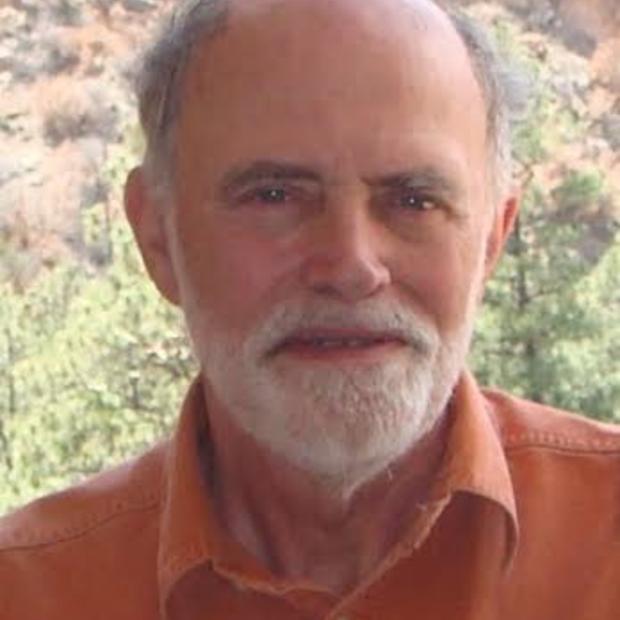CAPE TOWN — Death forgot to check today’s weather forecast. There was no gloomy rain, no need for funereal black umbrellas on this day of national grief in South Africa. In Cape Town, on Africa’s windswept southern tip, it was a balmy summer morning with a cloudless blue sky setting off the scenic bulk of Table Mountain rising behind the city.
North of here in Johannesburg, a few hours earlier, Nelson Mandela officially became an icon for the ages.
As news of Mandela’s death filtered to the wider world in the early morning, an unusually large group of worshippers gathered for the 7:15 a.m. communion service at St. George’s Cathedral in central Cape Town. A cluster of television cameras were there to document the event.
Near the altar, resting on an easel, was a color portrait of a beatific, smiling Mandela. Presiding at the eucharist, his familiar high-pitched voice as firm as ever, was Mandela’s political disciple, the 81-year-old Most Rev. Desmond Tutu, Archbishop (Emeritus) of the Anglican Diocese of Cape Town.
“God, thank you for the gift of Madiba,” said Tutu, using the familiar name by which Mandela is known throughout the nation.
The scene resonated with history. It was from this cathedral, on Sept. 13, 1989, that Archbishop Tutu led a march of 30,000 to Cape Town’s City Hall and famously proclaimed: “We are the rainbow people. We are the new people of South Africa.”
Apartheid was on the wane. Five months later, Mandela was released from 27 years of imprisonment, most of it on Robben Island, the bleak penal colony seven miles off the Cape Town waterfront. Four years later, he became South Africa’s elected president.
In a final tribute at the service, the traditional recessional hymn was replaced by a heartfelt singing of South Africa’s stirring but complicated national anthem Nkosi Sikelel’ iAfrika (God Bless Africa). Mandela’s insistence in trying to win support from hard-line Afrikaners by blending portions of the old apartheid-era anthem, “Die Stem van Suid-Afrika” into the new national anthem, along with verses in English and three native African languages — Xhosa, Zulu, Sesotho — is part of the Mandela legend. One more stroke of the man’s political genius.
Outside the cathedral, a parishioner strikes up a conversation. “Maybe his death can help rekindle our better natures,” she says, hopefully.
A tall order for anyone following the sordid news from this still-conflicted nation. South Africa heads into national elections next year. President Jacob Zuma leads Mandela’s African National Congress party. But endemic corruption, along with alleged massive spending of government funds on luxury improvements to Zuma’s private residence, threatens to undercut his chances for a second term.
(The comparison with Mandela is painfully obvious. Mandela taught hyper-ambitious politicos a lesson for all time by stepping down after one Presidential term. “Don’t call me, I’ll call you,” he said with a laugh, endearing himself even further, if possible, in the hearts of South Africans.)
In more unfortunate political news, a new national party, the Patriotic Alliance, was announced last weekend, with leadership held by a convicted bank robber and a Ponzi scheme operator. “We don’t ask who is a gangster when people register to join a party,” said the party secretary, cheefully.
Meanwhile, the long-awaited debut of electronic tolling on highways in the Johannesburg area is stirring a massive traffic revolt in the nation’s largest city. (520 commuters take note.) “E-tolls are nothing but highway robbery,” proclaimed a headline in The Star, a Johannesburg daily.
A stunning joint statement by Catholic, Presbyterian and Methodist leaders urged their members to practice civil disobedience by refusing to buy E-tags for their vehicles.
“We struggled through and fought against apartheid and we will fight this, too,” said Bishop Abel Gabuza, chairman of the South Africa Catholic Bishops Conference, in perhaps the world’s first attempt to place traffic scofflaws on a moral plane with the fight against racism.
Perhaps there are arguments to a higher calling that it’s just as well Madiba didn’t live to hear.
Letter from South Africa
As news of Nelson Mandela's death spread, worshippers gathered at St. George’s Cathedral in central Cape Town. Crosscut's Eugene Carlson was there and sends this report.

Spontaneous memorial to Nelson Mandela on a gate to the Parliament building in Cape Town, South Africa.
As news of Nelson Mandela's death spread, worshippers gathered at St. George’s Cathedral in central Cape Town. Crosscut's Eugene Carlson was there and sends this report.


